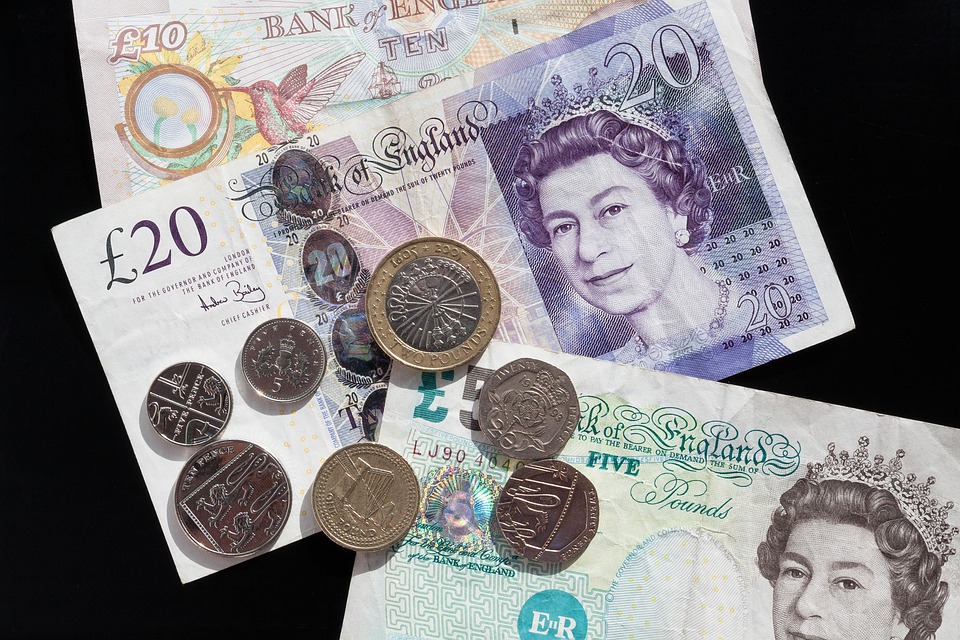What is a Bank?
A bank definition is a financial institution that accepts deposits from the public and creates a demand deposit while simultaneously making loans. Lending activities can be directly performed by the bank or indirectly through capital markets.
Whereas UK banks near me play an important role in financial stability and the economy of a country, most jurisdictions exercise a high degree of regulation over banks. Most countries have institutionalized a system known as fractional-reserve banking, under which banks hold liquid assets equal to only a portion of their current liabilities. In addition to other regulations intended to ensure liquidity, banks are generally subject to minimum capital requirements based on an international set of capital standards, the Basel Accords.
Banking in its modern sense evolved in the fourteenth century in the prosperous cities of Renaissance Italy but, in many ways, functioned as a continuation of ideas and concepts of credit and lending that had their roots in the ancient world.
Types of UK Banks
- Commercial Bank:A bank or a division of a bank that mostly deals with deposits and loans from corporations or large businesses.
- Community Bank:A bank locally operates financial institutions that empower employees to make local decisions to serve their customers and partners.
- Community Development Bank:Regulated bank that provides financial services and credit to under-served markets or populations.
- Land Development Bank:The special banks providing long-term loans are called land development banks (LDB).
- Credit Unions or Co-Operative Bank:Not-for-profit cooperatives owned by the depositors and often offering rates more favourable than for-profit banks.
- Postal Savings Bank:Savings banks associated with national postal systems.
- PrivateBank: Banks that manage the assets of high-net-worth individuals.
- Offshore Bank:Banks located in jurisdictions with low taxation and regulation.
- Savings Bank: Savings banks have kept their focus on retail banking: payments, savings products, credits, and insurances for individuals or small and medium-sized enterprises.
- Ethical Bank: Banks that prioritize the transparency of all operations and make only what they consider to be socially responsible investments.
Types of UK Banks Accounts

Bank statements are accounting records produced by banks under the various accounting standards of the world. Under GAAP there are two kinds of accounts: Debit and Credit. Credit accounts are Revenue, Equity and Liabilities. Debit Accounts are Assets and Expenses. The bank credits a credit account to increase its balance, and debits a credit account to decrease its balance. British international students generally apply for a Debit Card, which requires depositing money first and then using it.
- Debit Card:Known as a check card or bank card, is a payment card that can be used in place of cash to make purchases.
- Credit Card:A payment card, usually issued by a bank, allowing its users to purchase goods or services or withdraw cash on credit. Using the card thus accrues debt that has to be repaid later.
Organizations of UK Banks Card
- UnionPay: UnionPay is a Chinese state-owned financial services corporation headquartered in Shanghai, China. It provides bank card services and a major card scheme in mainland China. UnionPay cards can be used in 181 countries and regions around the world.
- VISA: VISA is an American multinational payment card services corporation and world’s second-largest card payment organization headquartered in San Francisco, California. It facilitates electronic funds transfers throughout the world, most commonly through Visa-branded credit cards, debit cards and prepaid cards.
- MasterCard: MasterCard is an American multinational payment card services corporation headquartered in Purchase, New York. It offers a range of payment transaction processing and other related-payment services such as travel-related payments and bookings.
UK Banks and Cards
- HSBC
HSBC Holdings plc is a British universal bank and financial services group headquartered in London, England, with historical and business links to East Asia and a multinational footprint. It is a corporate finance institute and one of best banks for business accounts and best checking account deals.
The process of opening a Bank Statement at HSBC is cumbersome, and sometimes you can only get the bank-certified and stamped statement by mail; and you need to pay a 2.75% “non-sterling transaction fee” when using an HSBC visa debit card outside the UK.
HSBC Debit Card is suitable for new students to open an account. There are no monthly fees, and you can withdraw cash up to 300 pounds per day. When opening an account, you can apply for Arranged Overdraft – the first 25 pounds of overdraft are interest-free.
- Barclays
Barclays plc is a British multinational universal bank, headquartered in London, England. Barclays operates as two divisions, Barclays UK and Barclays International, supported by a service company, Barclays Execution Services. It is a corporate finance institute and one of best banks for business accounts and best banks for checking and savings accounts.
Student Additions Account is suitable for new students to open an account. There is no monthly fee, and you can apply in advance through the mobile APP. Discounts include: up to 10% cash rebate, 12-month free subscription to perlego (online learning library), etc.
- Lloyds Bank
Lloyds Bank plc is a major British retail and commercial bank with a significant presence across England and Wales. It has traditionally been regarded one of the “Big Four” clearing banks. Established in Birmingham in 1765, Lloyds Bank expanded considerably during the 19th and 20th centuries, acquiring several smaller banks along the way. It is a corporate finance institute and one of best bank accounts for small businesses and best banks for checking and savings accounts.
Classic Account is suitable for new students to open an account. There are no monthly fees and each ATM withdrawal is limited to £500. You can also get 15% cash back. Lloyds Bank also supports Apple Pay and Google Pay, and you can pay store fees of up to £45 (contactless) without entering a PIN.
- Bank of Scotland
Bank of Scotland plc is a commercial and clearing bank based in Edinburgh, Scotland, and is part of the Lloyds Banking Group. It is a corporate finance institute and one of best bank accounts for small businesses and best banks checking account.
Classic Account is suitable for new students to open an account. You can enjoy 15% daily discount and support contactless payment. The biggest feature is that you can earn interest, just add Vantage for free when opening an account and guarantee a monthly deposit of 1,000 pounds and an account balance greater than 0 pounds.
- Santander
Banco Santander S.A. trading as Santander Group is a Spanish multinational financial services company based in Madrid and Santander in Spain. It is a corporate finance institute and one of best bank accounts for small businesses and best banks checking account.
Essentials Current Account is suitable for new students to open an account. You only need to be over 18 years old, have a residential address in the UK, have moved to the UK within the past 12 months, and have proof of study to open an account. The monthly fee is only 1 pound and there is a 15% cashback promotion. Each ATM withdrawal is capped at £500.
- Natwest
National Westminster Bank Plc, trading as NatWest, is a major retail and commercial bank in the United Kingdom based in London, England. It is a corporate finance institute and one of best bank accounts for small businesses and Britain’s biggest bank.
Student International Bank Account is suitable for new students to open an account. Two packages are available.
A: Monthly fee of 10 pounds and choose one of three membership gift packages:
- One-year Amazon Prime Student membership + £1 Amazon gift card
- National Express Coach membership card valid for 4 years
- Tastecard valid for 4 years + 2 pieces of 10% off or 50% meal discount
B: 0 monthly fee and no gift package.
- Metro Bank
Metro Bank PLC is a retail and commercial bank operating in the United Kingdom, founded by Anthony Thomson and Vernon Hill in 2010. It is a corporate finance institute and one of best bank accounts for small businesses and major British banks.
Current Account is suitable for new students to open an account. You only need to be over 18 years old and live in the UK to apply. There are no monthly fees, there are no fees when using Metro Bank when traveling in Europe, and you can get a £50 bonus for referring new friends to use Metro Bank.
- Bank of China
Bank of China is a Chinese multinational banking and financial services corporation headquartered in Beijing, China. It is one of the “big four” banks in China.
Student Prime Account is suitable for new students to open an account. You only need to bring your passport, ID card, and British university admission notice to open a British account at a domestic Bank of China branch, apply for a pound debit card for free, and go to the branch to pick up the physical card after arriving in the UK. There is no handling fee for transferring from a domestic Bank of China account to a British account, which is especially suitable for remitting large amounts of tuition fees and living expenses in advance. There are no monthly fees for the account, but transfers to other bank accounts in the UK will cost £15. The disadvantage is that contactless payment is not supported.
Digital UK Banks
Digital Bank is a type of direct bank that operates exclusively using online banking without traditional physical branch networks that challenge traditional banks. There were two main types of company that provided services digitally: companies that applied for their own banking license and companies in a relationship with a traditional bank to provide those financial services. The former were called challenger banks and the latter were called neobanks.
- Monzo
Monzo Bank Limited is a British online bank based in London, England. Monzo was one of the earliest of a number of new app-based challenger banks in the UK.
Monzo is most suitable for traveling to Europe. It supports real-time currency exchange and waives handling fees for consumption in non-sterling areas. It can also quickly split the bill to each person, and then remit the money through the link. The real-time consumption reminder function is also very timely, automatically accounting and classifying consumption types. Don’t worry about losing the card, the app homepage can be key to freeze the bank card.
- Starling Bank
Starling Bank is a British bank, occasionally referred to as a digital challenger bank or neobank, providing current and business bank accounts in the United Kingdom.
There are no monthly fees and no fees when traveling to Europe, and no additional interest when traveling overseas. You can quickly and easily transfer funds by finding people nearby, and support quick deposits of less than 500 pounds by taking photos.
- Revolut
Revolut Group Holdings Ltd is a global neobank and financial technology company with headquarters in London, UK that offers banking services for retail customers and businesses.
There are no fees for transferring excess pounds back home via Revolut.
- Chase Bank
JPMorgan Chase Bank, N.A., doing business as Chase, is an American national bank headquartered in New York City that constitutes the consumer and commercial banking subsidiary of the U.S. multinational banking and financial services holding company, JPMorgan Chase. The biggest benefit of Chase Bank is that users get 1% cash back on all purchases in the first year after opening the card, so if you spend £100 today, you can get £1 cash back. Chase could charge consumers for keeping their checking accounts open.
Basic UK Banks Services
- Checking Accounts
Checking accounts are deposits used by consumers and businesses to pay their bills and make cash withdrawals. They pay little or no interest and typically come with monthly fees, usage fees, or both.
- Savings Accounts
Savings accounts pay interest to the depositor. Depending on how long account holders hope to keep their money in the bank, they can open a regular savings account that pays a little interest or a certificate of deposit (CD) that pays a little more interest. The CDs can earn interest for as little as a few months or as long as five years or more.
- Loan Services
Banks make loans to consumers and businesses. The cash that is deposited by their customers is lent out to other customers at a higher rate of interest than the depositor is paid.
How Do I Know My Money is Safe in UK Banks?
The Federal Deposit Insurance Corporation (FDIC) is an independent agency created by Congress to maintain stability and public confidence in the U.S. financial system. The FDIC supervises and examines banks to ensure that the money they handle is safe. Moreover, it insures your money. The insurance maximum is $250,000 per depositor, per insured bank, for each account ownership category.
Currently, commercial banks are regulated in most jurisdictions by government entities and require a special bank license to operate. Usually, the definition of the business of banking for the purposes of regulation is extended to include acceptance of deposits, even if they are not repayable to the customer’s order – although money lending, by itself, is generally not included in the definition.
How to Open a UK Bank Account?

- Step 1: Reservation
Reservations can be made by phone, on the official website and on site. If you go to make an appointment on site, pay special attention to the opening hours of UK banks. In the UK they close very early on weekdays and most banks are not open on Sundays.
- Step 2: Open an Account
The staff will recommend the account type that suits you and ask whether phone banking and online banking are available. You can download the bank app in advance and ask the staff to help register. In addition, it is best to ask about the IBAN and SWIFT code in order to wire the pound from domestic.
- Step 3: Required Material
- Bank Appointment Form
- Passport
- BRP Card
- Bank Letter
- Accommodation Contract: Paper Version/Electronic Version
- Proof of Enrollment
- Step 4: Receive Bank Cards
- It will take about a week to receive the bank card, so be sure to check your email.
- The payment password PIN number and bank card are mailed separately.
- After receiving the card, it must be activated before it can be used.
- The payment password can be changed by phone or online/onsite.
Conclusion
Banks in UK is clearly demonstrated in this blog. Before choosing a bank, you should make a comparison of the various fees and charges that come with your accounts or any loans you might need. A bit of research and comparison will ensure you find the right fit for safeguarding your money, establishing credit, making payments, applying for loans, receiving funds, and saving money for future needs such as retirement, emergencies, and homebuying.
After find a reliable bank, accommodation is next important thing. uhomes.com is a resourceful platform which provide affordable and comfortable student accommodation in UK.
FAQ
HSBC Holdings Plc, Lloyds Banking Group Plc, Barclays Plc, Standard Chartered Plc, and NatWest Group Plc are the top 5 UK-based Banks in 2024 by revenue.
This is the second assessment by the Bank of England (the Bank), as resolution authority, of the eight major UK banks’ preparations for resolution under the Resolvability Assessment Framework (RAF) – Barclays, HSBC, Lloyds Banking Group, Nationwide, NatWest Group, Santander UK, Standard Chartered and Virgin Money UK.
HSBC Holdings. HSBC is one of the largest banking and financial services organisations in the world.
Barclays. Barclays is a British multinational investment bank and financial services company.
Lloyds.
NatWest Group.
Standard Chartered.
Santander UK.
Nationwide Building Society.
TSB Bank.
HSBC. HSBC was the largest bank in the United Kingdom as at the end of 2023, boasting total assets valued at approximately 3.04 trillion U.S. dollars. As of 2023, HSBC was also the largest bank in Europe, and it stood as one of the global banking industry’s leading institutions.
The mission of the Securities Investor Protection Corporation (SIPC) is to recover cash and securities in the event a member brokerage firm fails. SIPC is a nonprofit corporation that Congress created in 1970. SIPC protects the customers of all registered brokerage firms in the U.S. This applies to stocks and bonds (securities) and cash that a brokerage firm holds. Brokerage firms rarely fail or close suddenly, but if this occurs, the SIPC helps close the firm through liquidation and establishes claims processes by which it can protect the investor. SIPC protects your account for up to $500,000 in securities. This includes a limit of $250,000 in cash in your account. This link will show you a list of all registered SIPC members.
You should consider whether you want to keep both business and personal accounts at the same bank, or whether you want them at separate banks. A retail bank, which has basic banking services for customers, is the most appropriate for everyday banking. You can choose a traditional bank, which has a physical building, or an online bank if you don’t want or need to physically visit a bank branch. You might consider a credit union, which is a nonprofit institution and is available to serve the needs of people with a common employer, labor union, or professional interest.
Bank size is another consideration. Large retail banks are often well-known, big-name banks and have locations throughout the U.S., which is convenient if you travel often for work or vacation. You would have easier access to your funds when you’re away and may be able to avoid foreign ATM fees.
Otherwise, you might find that a smaller bank would offer more personalized customer service and the products you prefer. A community bank, for example, takes deposits and lends locally, which could offer a more personalized banking relationship.
Choose a convenient location if you are choosing a bank with a brick-and-mortar location. If you have a financial emergency, you don’t want to have to travel a long distance to get cash.







